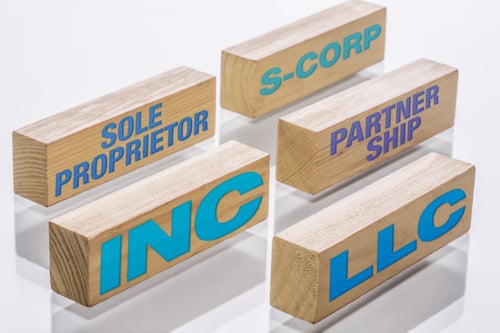Powell Tax Law Blog

Tax Tips for Small Business Owners
Tax planning is essential for small business owners to optimize their finances and reduce their tax burden.
“Small business owners are often looking for ways to minimize their company’s tax liability,” says Bank of America’s Merrill (previously branded as Merrill Lynch).
The past year has brought many economic challenges for small businesses from prolonged high inflation, rising interest rates, and continued supply chain disruptions, so efficient tax planning is more important than ever.
“Running a business is hard enough without adding the complexity of filing taxes each year,” says Nationwide Insurance.
Small Businesses Must Plan for Taxes Year-Round
Of course, the key is to not treat tax planning as a once-a-year exercise but to keep your finances in check with an eye on the taxman from New Year’s Day through New Year’s Eve.
“One of the most overlooked ways for small businesses to save at tax time starts at the beginning of each tax year,” David Ayoub, CPA, tells Intuit. “It’s simple. Keep every receipt. Find a way to corral all the loose receipts lying around your desk, in your purse, and in your car. They can add up to a lot of deductions.”
Business.com says that tax planning can benefit small business owners in many ways, including:
- Mitigating Liabilities by avoiding common mistakes and maximizing tax relief.
- Helps keep the business up to date on tax laws.
- Encourages business growth with strategic tax planning.
“Tax season can be stressful, but if you fold tax planning into your business strategy, the tax process becomes quicker and easier,” wrote Sean Peek for Business.com. “Tax season is a grueling time of year for many small businesses. However, you can prevent tax-season headaches by thinking about your taxes year-round and preparing for tax season long before it’s time to file.”
Try These 26 Tax Tips to Help Your Small Business Grow
Here are some tax tips that can help small business owners make the most of their tax situation (as always, seek advice from your tax professional before claiming any business deductions on a tax return):
- Understand Business Structure: Choose the right business structure (sole proprietorship, partnership, LLC, S corporation, or C corporation) that aligns with your business goals and offers tax advantages.
“The business structure you choose influences everything from day-to-day operations to taxes and how much of your personal assets are at risk. You should choose a business structure that gives you the right balance of legal protections and benefits,” says the U.S. Small Business Administration (SBA). - Keep Accurate Records: Maintain organized and accurate financial records throughout the year. This includes income, expenses, receipts, and invoices. Proper record-keeping makes it easier to claim deductions and credits, and it ensures compliance with tax regulations.
Another easy and often overlooked deduction is the cash transactions that many small businesses do. “Keep track of everything in a log,” Ayoub tells Intuit. - Deductible Business Expenses: Familiarize yourself with deductible business expenses, such as office supplies, equipment, travel expenses, employee wages, and marketing costs. Take advantage of all legitimate deductions to reduce taxable income.
NerdWallet lists 21 small business deductions that can be claimed by sole proprietorships, as well as C-corps and S-corps, partnerships, and LLCs (although there might be different rules for each):
o Startup and organizational costs: The IRS considers these as a capital expense and they can be amortized over several years.
o Inventory: Remember to value your inventory at the beginning of each tax year to determine the cost of goods sold. Do not forget to figure in the cost of products or raw materials (including freight), storage, direct labor costs, and factory overhead.
o Utilities: Water, electricity, trash, telephone bills, and other utilities are fully deductible if used for your business.
o Insurance: The cost of the business owner’s health insurance, business continuation insurance, and the business owner’s policy are deductible. Also check on the deductibility of any other policies such as liability, malpractice, workers; comp, auto, business-provided life insurance, and business interruption.
o Home Office Deduction or Business Property Rent: If you operate your business from a home office, you may be eligible for a home office deduction. If you rent your business property, you can deduct your lease or rental payments from taxes.
o Auto Expenses: Keep records to prove business usage, including miles driven, to deduct the use of a vehicle for business purposes.
o Rent and Depreciation on Equipment and Machinery: If you lease equipment or machinery for your business, you can fully deduct these costs.
o Office Supplies: These small purchases (from staples to paper) can add up.
o Office Furniture: This is considered another type of office supply.
o Software Subscriptions: Claim these on Schedule C tax form under “Other Common Business Expenses: Other Miscellaneous Expenses.”
o Advertising and Marketing: Business-related advertising and marketing is fully deductible.
o Business Entertainment: Consult your tax expert as some expenses can be 100 percent deductible (such as meal provided at an office party) and other situations 50 percent (business meal with a client).
o Travel Expenses: Airfares, tolls, taxis, and lodging can be deductible for travel under certain IRS rules such as expenses can not be “lavish or extravagant” but must be “ordinary and necessary.” Generally, the travel must be away from your “tax home” location and for longer than a full workday.
o Interest: Business loan interest is typically deductible.
o Bad Debt: Small businesses often “write off” debts they cannot collect from customers, clients, vendors, or others.
o Taxes: Taxes you pay to other entities such as state and local are deductible as well as the employer share of FICA, FUTA and state unemployment taxes.
o Employee Salaries: Do not forget to include all compensation paid to employees including bonuses and commissions.
o Employee Benefits Programs: Certain employee benefit programs can be deducted such as education assistance, dependent care assistance, and qualified retirement plan accounts.
o Employee Gifts: $25 per year per employee is deductible.
o Contracted Labor: Independent contractors' and freelancers' compensation for your business is deductible.
o Legal and Professional Fees: Deduct fees for your business paid to legal, accounting, and other professionals.
- Qualified Business Income (QBI) Deduction: If your business is a pass-through entity (sole proprietorship, partnership, S corporation, or LLC), you might be eligible for the QBI deduction, which allows you to deduct up to 20 percent of qualified business income from your taxable income.
- Deduct Appreciable Stock Contributions: If your small business makes charitable contributions during the year, you have the option to donate appreciable stock instead of money. If you purchase stock for $100 per share and the value is now $300 – you can write off $300 at tax time (an extra $200 on top of the $100 you were out-of-pocket for the initial purchase).
- Tax Professional Guidance: Seek advice from a qualified tax professional or accountant who specializes in small business taxes. They can help you navigate the complexities of tax laws and identify opportunities for tax savings.
Reach out to Powell Tax Law in the Austin, Houston, and San Antonio area if you have a tax issue that needs addressing with the IRS.







